On March 4, the swissnex China Beijing office within the Embassy of Switzerland co-organized a panel discussion on Innovation in China with the title Fast Times and Faster Companies, hosted by Swiss Ambassador H.E. Jean-Jacques de Dardel. The exclusive event, which generated a huge interest among the Beijing start-up community – exceeding the seating capacity by six fold – has welcomed distinguished speakers and tech-savvy guests for a lively exchange on the latest developments within China’s start-up and technology scene. The moderated talk by Andy Mok, co-organizer and Managing Director of Red Pagoda Resources, was joined by:
- Julie Makinen, Fast Company contributor & Beijing correspondent for the Los Angeles Times
- Dr. Zhang Yusheng, CEO & founder of Apricot Forest (2nd most innovative company in China)
- Frances Du, Director of Microsoft Ventures in the Greater China Region
- Jason Zhao, Vice President at Kleiner Perkins Caufield & Byers China, and
- Olivier Glauser, Co-founder and CFO of Shankai Sports
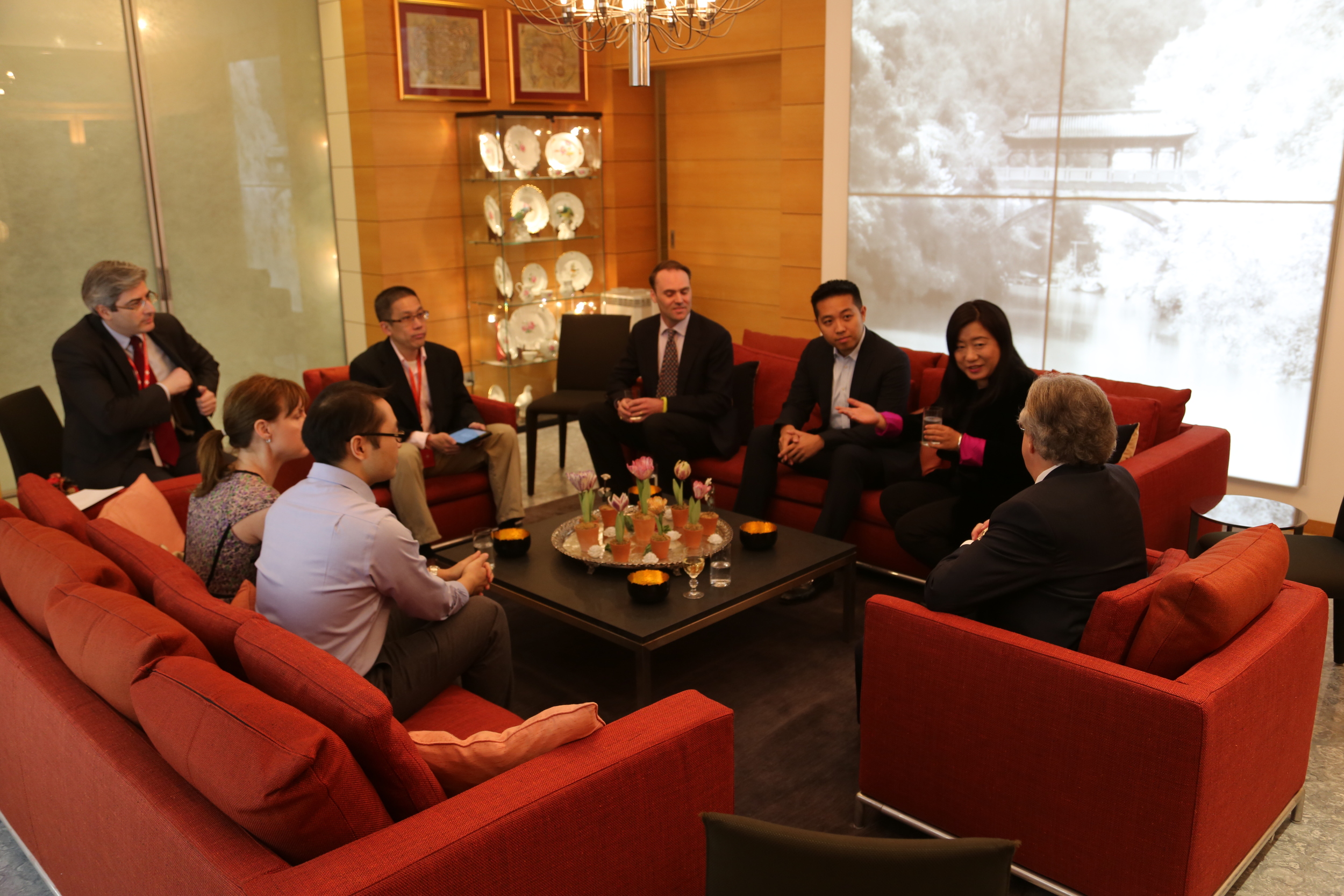
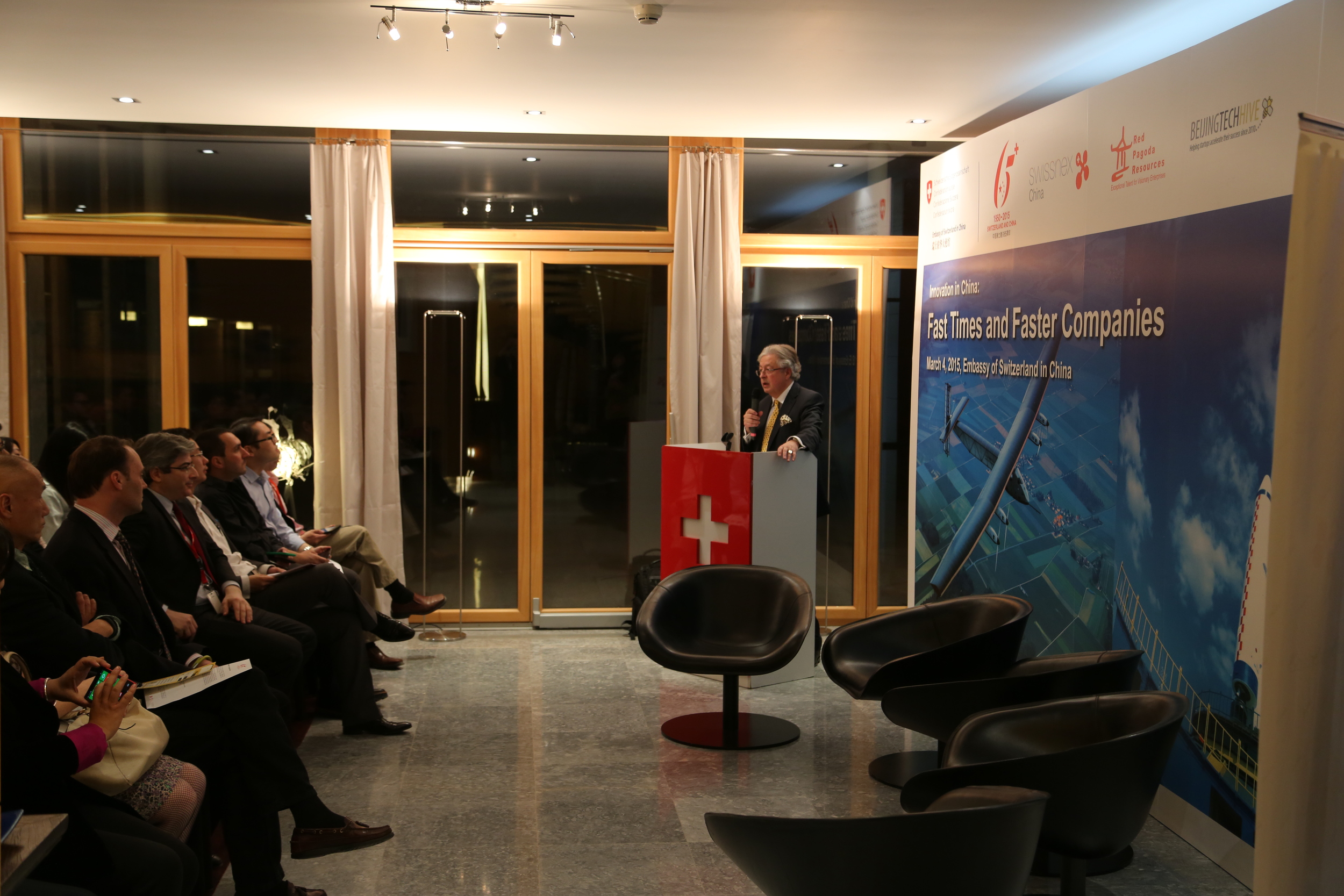
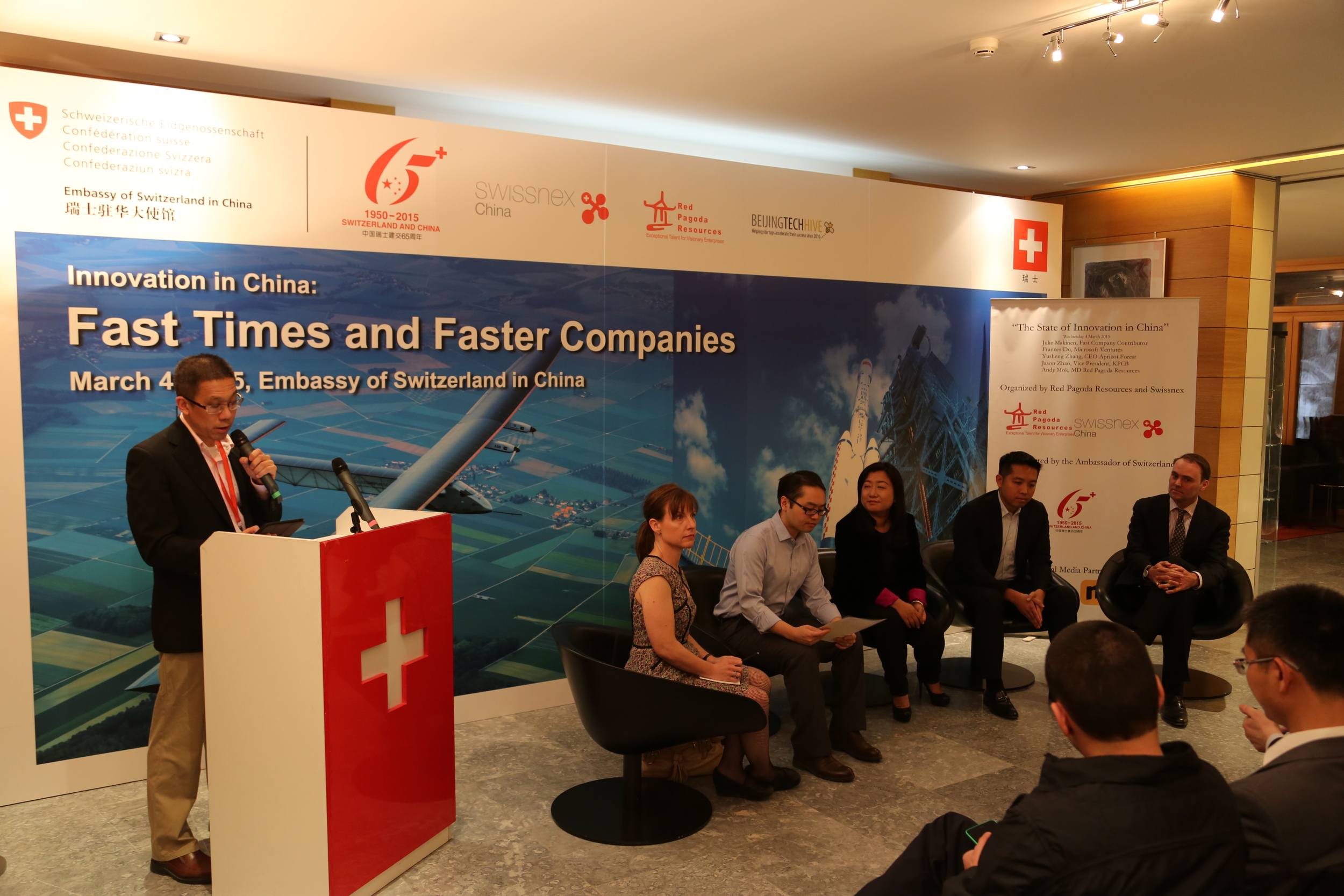
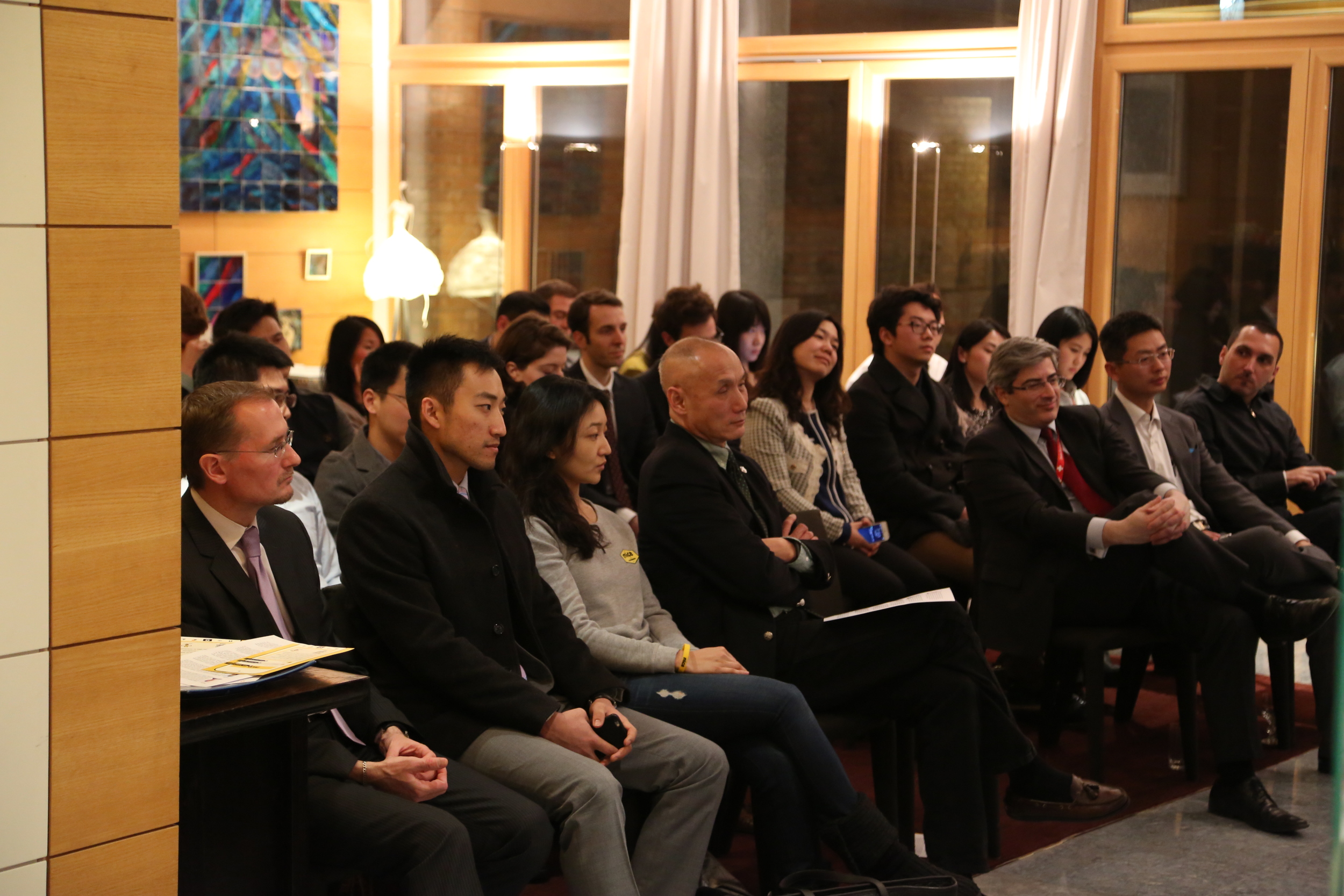


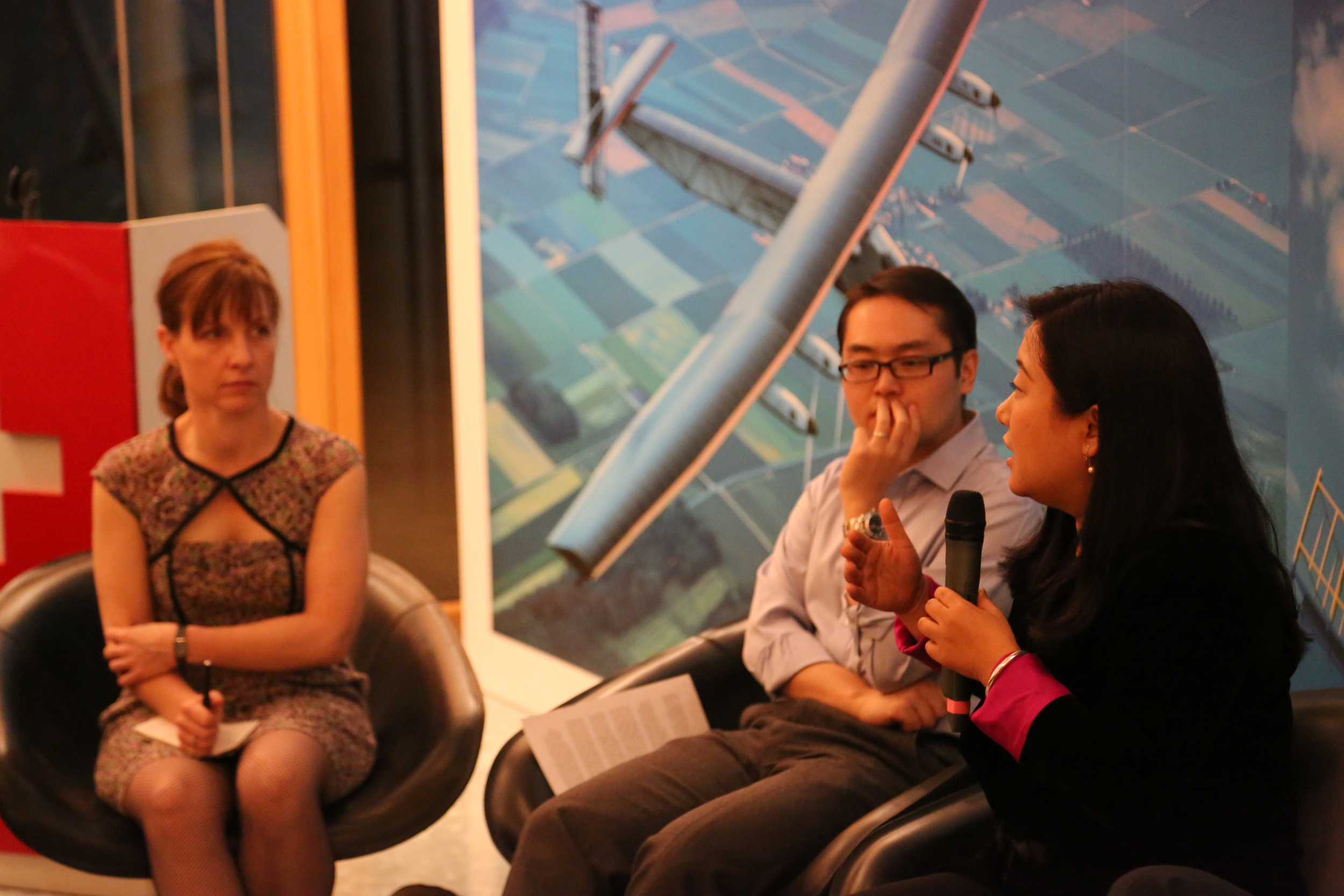
The panel discussion highlighted that innovation is a term, which continuously innovates itself. It strongly relies on social structures, educational institutions, government policies, technologies and their accessibility. A fast moving world requires faster moving companies, able to anticipate and dynamically act to developments in both the near and far future, and to pursue the aim of continuously improving people’s lives or create value within a society. While some critics may argue that China does not innovate particularly well, others like Mrs. Makinen state that China is about to change and to take the lead in innovation. She approaches innovation with an emphasis on technology, accentuating that the access to advanced equipment in, for instance, a hospital, may significantly raise the efficiency of medical doctors dedicating their lives to curing diseases and injuries. Hospitals, unlike humans, act in an institutionalized way, and organizational structures may vary from one place or country to another. It is therefore crucial to engage with new scenarios and domestic institutions in order for a foreign startup or established company to become successful in an unfamiliar market. In a broader sense, the innovative challenge lies not in simply supplying an innovative product to a new market, but rather in a company’s adaptability and willingness to appropriate technologies to a changing context. TradeHero is a perfect example of a foreign startup company based in Singapore, which has gained a strong foothold in China through the customized implementation of innovative technologies, and has achieved to record a remarkable success.
According to Dr. Zhang, innovation starts with caring about an existing problem or discrepancy. In fact, to increase simplicity and make technology cheaper, hence more accessible to the general public, enables changes, creates new opportunities, and facilitates innovative processes. In Du’s opinion, China is currently experiencing exceptional rates of developments in these fields and, as a consequence, is taking big and fast steps in speeding up innovation. Building up on these arguments, Mr. Zhao believes that new technologies now only allow new forms of discoveries, but also strengthen either financial or social networks, again attracting successful foreign companies to major investments in China. As a Swiss representative of visionary entrepreneurs and investors, Mr. Glauser actually made a start-up sports company greatly successful in China. However, he clearly differentiates between technology and innovation, and treats them as two separate entities. In his particular case, Mr. Glauser ingeniously connects the strength of Swiss sports innovation with new Chinese market opportunities. As highly ambitious Swiss projects like the Solar Impulse also show, Switzerland offers Excellency in technology in a relatively small market. China, on the other hand, impresses with a huge market, although its technology standards might still have strong potential for growth. With reference to Mr. Glauser’s success, pairing the two spheres could in fact result in unleashing new and powerful innovative ideas.
In this spirit, the Embassy of Switzerland and swissnex China once again commemorate the 65th Anniversary of the establishment of bilateral relations between Switzerland and China, and promote commitment to research, development, sciences, and technologies all over the world for the benefit of the people and society.
- Contributed by Marcel Schneider, Attaché of Science, Technology and Education Section, Embassy of Switzerland in Beijing
